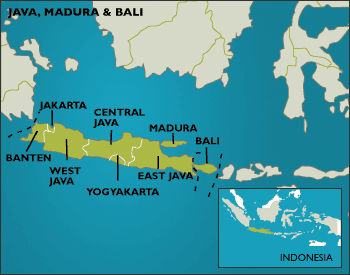Down to Earth No 58 August 2003
Indonesia is being pushed by powerful mining multinationals to open up protected forests for mining, but the international campaign to prevent yet more forest destruction is gaining momentum.
A final decision on whether or not companies can mine in Indonesia's protected forests - putting at risk some of the most biodiverse ecosystems in the world - is expected to be issued by Indonesia's parliament soon.
An Indonesian NGO coalition, led by mining advocacy network, JATAM, is campaigning to ma


